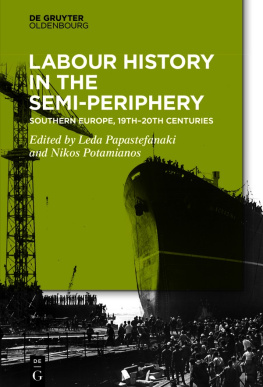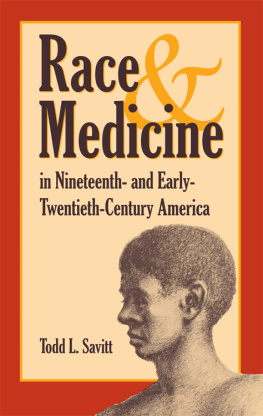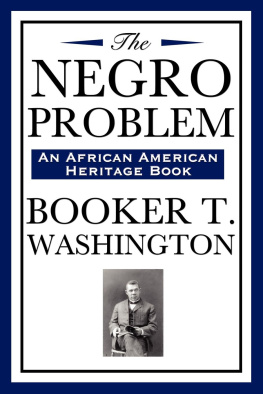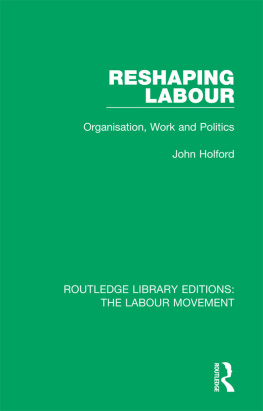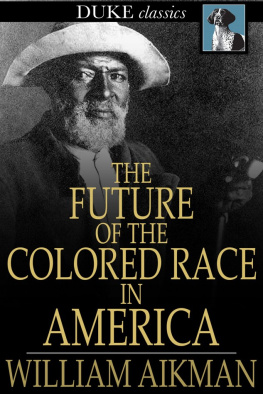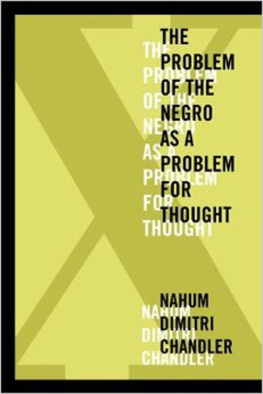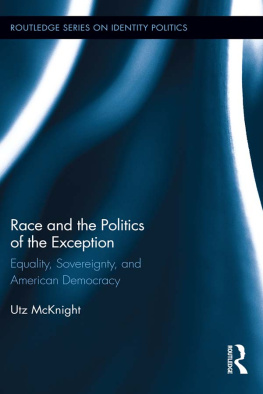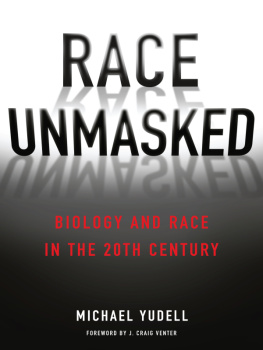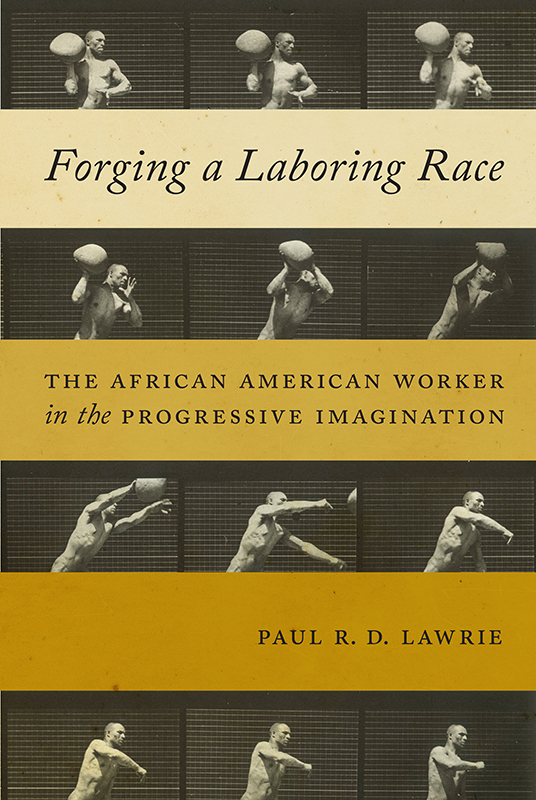
Forging a Laboring Race
Culture, Labor, History Series
General Editors: Daniel Bender and Kimberley L. Phillips
Working the Diaspora: The Impact of African Labor on the Anglo-American World, 16501850
Frederick C. Knight
Class Unknown: Undercover Investigations of American Work and Poverty from the Progressive Era to the Present
Mark Pittenger
Steel Barrio: The Great Mexican Migration to South Chicago, 19151940
Michael D. Innis-Jimnez
Fueling the Gilded Age: Railroads, Miners, and Disorder in Pennsylvania Coal Country
Andrew B. Arnold
A Great Conspiracy against Our Race: Italian Immigrant Newspapers and the Construction of Whiteness in the Early 20th Century
Peter G. Vellon
Reframing Randolph: Labor, Black Freedom, and the Legacies of A. Philip Randolph
Edited by Andrew E. Kersten and Clarence Lang
Making the Empire Work: Labor and United States Imperialism
Edited by Daniel E. Bender and Jana K. Lipman
Whose Harlem Is This, Anyway? Community Politics and Grassroots Activism during the New Negro Era
Shannon King
Health in the City: Race, Poverty, and the Negotiation of Womens Health in New York City, 19151930
Tanya Hart
Trotskyists on Trial: Free Speech and Political Persecution since the Age of FDR
Donna T. Haverty-Stacke
Forging a Laboring Race: The African American Worker in the Progressive Imagination
Paul R. D. Lawrie
Forging a Laboring Race
The African American Worker in the Progressive Imagination
Paul R. D. Lawrie

NEW YORK UNIVERSITY PRESS
New York
NEW YORK UNIVERSITY PRESS
New York
www.nyupress.org
2016 by New York University
All rights reserved
References to Internet websites (URLs) were accurate at the time of writing. Neither the author nor New York University Press is responsible for URLs that may have expired or changed since the manuscript was prepared.
Library of Congress Cataloging-in-Publication Data
Names: Lawrie, Paul R. D., author.
Title: Forging a laboring race : the African American worker in the Progressive imagination / Paul R.D. Lawrie.
Description: New York : New York University Press, 2016. | Series: Culture, labor, history series | Includes bibliographical references and index.
Identifiers: LCCN 2016001632 | ISBN 9781479857326 (cl : alk. paper)
Subjects: LCSH : African AmericansHistory1877-1964. | African AmericansEmploymentHistory20th century. | Working class African AmericansHistory20th century. | LaborUnited StatesHistory20th century. | IndustrializationUnited StatesHistory20th century. | United StatesRace relationsHistory20th century.
Classification: LCC E185.6 .L345 2016 | DDC 331.6/396073dc23
LC record available at http://lccn.loc.gov/2016001632
New York University Press books are printed on acid-free paper, and their binding materials are chosen for strength and durability. We strive to use environmentally responsible suppliers and materials to the greatest extent possible in publishing our books.
Manufactured in the United States of America
10 9 8 7 6 5 4 3 2 1
Also available as an ebook
For my Children
William Anthony Ellison Lawrie
Zo Madeline Lawrie
And
As Always To Rose
Contents
The best part about completing this book is having the chance to thank the various people and institutions that made it possible. My debts are numerous. This project was brought to life by an amazing set of archivists who answered my vague and rambling inquiries with patience, humor, and unstinting professionalism. I would like to thank the staff at the Library of Congress in Washington, D.C., and the Schomburg Centre for Research in Black Culture in New York; Mary Ann Quinn at the Rockefeller Archive Centre; Fath Ruffins at the Smithsonian Institution in Washington, D.C.; Earl Spamer at the American Philosophical Society in Pennsylvania; and Richard Boylen and Walter Hill at the National Archives in College Park, Maryland. Mr. Hills immense knowledge of the National Archives and Records Administrations holdings in African American history saved me innumerable hours and led me on many productive detours. Even in the last stages of a long illness, Mr. Hill remained a model of dignity and grace.
Initial research was facilitated by grants from the Department of History, University of Toronto; Department of Humanities, University of Toronto Scarborough; and the Centre for American Studies (CSUS) at Trinity College, University of Toronto. Further assistance was provided by grants from the Rockefeller Archives Centre in New York and a Library Fellowship at the American Philosophical Society in Philadelphia. Final funds were provided by a Major Research Grant, Travel Grant, and SEED funding from the Faculty of Arts at the University of Winnipeg. Many thanks to Clara Platter, Dorothea Stillman Halliday, and Constance Grady at NYU Press for guiding me through the long and often confusing publishing processes. Thanks to the anonymous readers for NYU and to Jodi Narde for her rigorous and expert editing of the final manuscript. Thanks to Daniel Bender and Kimberley Phillips for including this book in the Culture, Labor, History series. Parts of chapter 1 appeared previously as Mortality as the Life Story of a People: Frederick L. Hoffman and Actuarial Narratives of African American Extinction, 18961915 in the Canadian Review of American Studies 43, no.3 (2013) and I am grateful for the permission to make use of that material.
Over the years I received invaluable guidance from a diverse group of scholars. Thanks to Stephen Brooke and Marc Stein at York University for providing wonderful models of engaged and rigorous scholarship and setting a young undergraduate on the pathfor better or worseto a life in academia. At the University of Toronto I would like to thank Elspeth Brown, Russ Kazal, Yonatan Eyal, Kenneth Bartlett, and Randall Hansen for their support. Most importantly, I was fortunate to have a remarkably supportive and gifted set of advisors who enhanced my graduate school experience every step of the way. Michael discourse and paradigms Wayne provided much-needed intellectual and personal perspective in navigating graduate school. I am forever grateful to Rick Halpern who fought for and supported me in every possible way, from my first day of graduate school to the very last. Daniel Bender was a model advisor, providing any and all forms of intellectual, financial, and emotional support. I simply could not have asked for a better mentor and friend.
A wonderful cohort of my peers helped relieve much of the isolation, tedium, and anxiety of graduate school and shaped the project in unintended and unexpected ways. Thanks to Nancy Catton, Benjamin Pottruff, Nathan Cardon, Camille Begin, Nadia Jones Gailani, Holly Karibo, Ian Rocksborough-Smith, and Jared Toney. My friends and family outside the program sustained and supported me throughout the years. Thank you to my best man Damian Temporale and his partner, Tina Burke, whose quiet strength and compassion for their wonderful family is an inspiration. To old friends, Matthew Nailer, Mike Mjanes, Ian Gooley, Sandra and Brian Neary, Patricia Moretti, and Natalie Bocciaand to Michael Hersh for his friendship and hospitality during many research trips to NYC. To Dr. Jeremy Shtern, my co-conspirator in academia and baseball analysis, an excellent and committed scholar, confidant, and dear friend. Very special thanks to Davarian Baldwin, for profound and consistent insights and for being a model of scholarly rigor, dedication, and collegiality, and a testament that exceptional scholarship can and should matter within and beyond the ivory tower.
Next page

